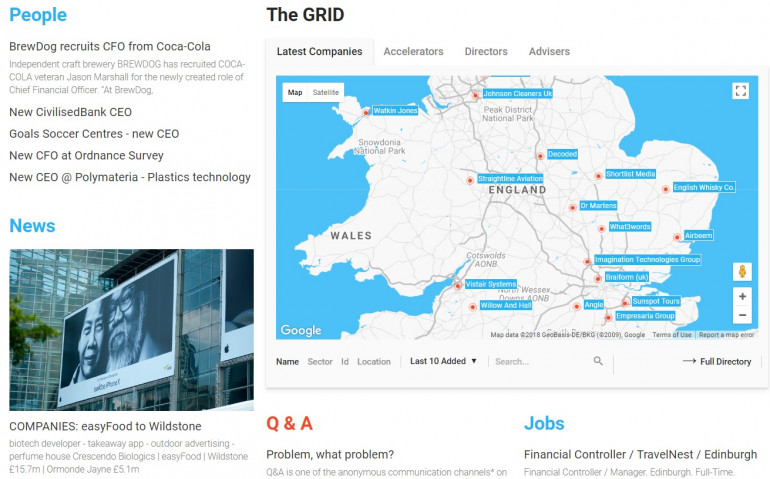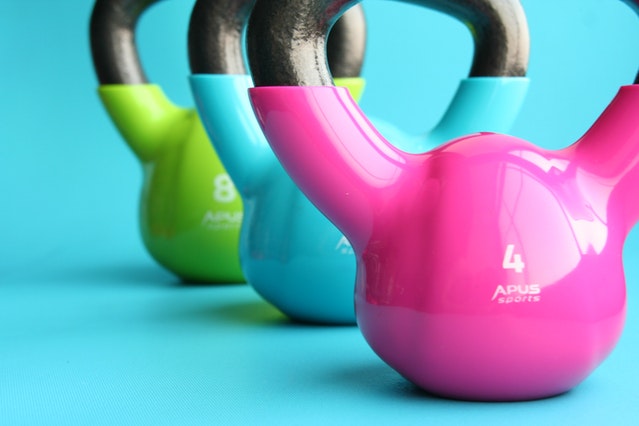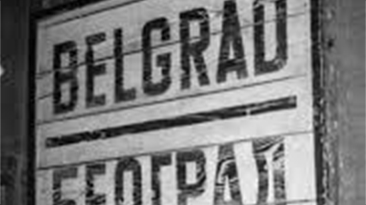Published by Directorzone Markets Ltd on November 28, 2016, 9:00 am in News, Other
Wednesday January 1st 2020

News about 7 UK growth companies and/or accelerators + turnover in the GRID marketplace, 20th - 26th November 2016:
Sweaty Betty £36.9m | Parentpay £9.7m | The Pen Shop £8m | Bonds Foundry Group £15m | Andrew Muirhead & Sons £128.6m | Iqarus | Austin Reed
OFF-GRID: * MKM Building Supplies £280m
SWEATY BETTY: Working out across the pond | HSBC advertorial in The Sunday Times
DZ profile:
Business: British activewear company. Opened our first store in Notting Hill, in west London and now has 45 stores in the UK
ICB Classification:
Launched: 1998
Founders: Simon Hill-Norton, chief executive, and wife Tamara
Financials: turnover £36.9m in the year to December 27 2015, up from £31.4m a year earlier. Pre-tax profit of £240,535 down from £954,987, largely owing to investment in new stores and digital marketing.
News:
US expansion. “In the beginning we operated entirely online, so we created a dollar-denominated website and sent out our catalogues to drive traffic to it,” he explains. When it opened its first store in New York in the summer of 2013, the financial complexities of operating in another country prompted it to look to a global bank for help: HSBC. It now has eight stores in the US and is opening a third LA store in West Hollywood.
PARENTPAY: Children don’t take cash to school— thanks to us | Laura Onita, The Sunday Times
DZ profile:
Business: website is used by more than 6,500 schools and it allows parents to pay online for meals, trips, uniforms and music lessons. They can log in, say, on a Sunday evening, top up the account and decide how much their children can spend that week at school. Schools pay an annual licence fee for the software — £1,200 for a secondary school, on average, and £500 for a primary — plus 1.29% of the payments that come through weekly.
ICB Classification:
Launched: 2005
Location: Coventry and has an office in Bridgwater, Somerset
Founder: Clint Wilson, 45
Staff: 125
Financials: made pre-tax profits of £3.8m on sales of £9.7m last year. Is aiming for pre-tax profits of £5.4m on sales of £12.2m this year. “I told my wife: ‘It’s probably going to be six months before we can derive an income from the business.’ It took 2½ years.”
Investment: In 2007 Wilson accepted a £200,000 investment from Andrew Neubauer, who is now the chairman. He and Neubauer own 95% of the business and his software development director the rest.
News: By 2011 the software was being used in 1,600 schools. But towards the end of 2011 the business ground to a halt. “We had too many parents struggling to access the site.” He hired more staff and rebuilt most of ParentPay’s systems. “We serve 2m parents”.
What businesses want from the Autumn Statement | Andy Bounds, Chris Tighe and Mure Dickie, FT. November 23
Industry hopes for action on tax breaks, overheads, stability, Brexit clarity and VAT
THE PEN SHOP
DZ profile:
Business: Europe’s largest writing instrument specialist. Has 19 shops, employing people from Glasgow to London. Products span Kingsley, a lower cost brand, through to premium pens made by companies including Mont Blanc, Caran d’Ache and Yard-O-Led, the UK’s only remaining pen maker. The Pen Shop serves the corporate market too.
ICB Classification:
Launched: The origins of the Pen Shop lie in a Newcastle stationers founded in 1858.
Location: Its outlets, focused on city centres, include London railway stations and concessions in Debenhams, House of Fraser and Fenwick.
Staff: 150. Colin McClymont, chief executive
Financials: is profitable on turnover of about £8m a year.
News:
1. McClymont led a management last year.
2. The Pen Shop also sells online. “It’s by far our biggest [outlet],” he says. He expects online to reach 50 per cent of sales within four years, from 20 per cent now.
BONDS FOUNDRY GROUP
DZ profile:
Business: UK’s second largest independently owned foundry group. Bonds makes specialist bespoke single castings or small batches, enabling it to compete against Chinese and Indian producers. Its customers include US-owned Flowserve and SPX as well as BAE, Rolls-Royce and the Ministry of Defence. About 80 per cent of output ends up overseas. Defence sector: haft brackets for the propellers of Type 45 destroyers and naval anchors are among Bonds products.
ICB Classification:
Launched: began in 2000 by buying a Victorian foundry in administration
Location: County Durham
Staff: 275. Paul Duncan, chairman
Financials: Mr Duncan expects turnover to rise from £15m to £22m; he is confident of a good 2017, with a return to profitability.
News:
1. In the past 14 months, it has acquired two foundries, in Sheffield and Scunthorpe, adding £12m turnover and 110 employees. Both had become surplus to the needs of their overseas owners; both were sold with ongoing supply agreements. Mr Duncan describes the Scunthorpe plant, bought from Australian Bradken, as the UK’s best-equipped heavy castings foundry. It has iron and steel capability. The deal is supported by a £500,000 grant, which Bonds must match, from the British Steel Support Fund — the first time Bonds has received any government aid beyond R&D; tax offset. Refinancing assisted the deal.
2. The group includes a plant at Alston, Cumbria, which is a niche provider of impellers — specialist castings for the oil and gas sector. Under Bonds’ restructuring, Alston remains but the Tow Law operations will close and consolidate with the nearby Crook site, shedding 38 jobs. Heavy castings work will move to Scunthorpe.
ANDREW MUIRHEAD & SONS
DZ profile:
Business: world’s largest supplier of leather for aircraft seats supplies airlines and seating manufacturers across 60 countries and relies on exports for more than 70 per cent of its £19m annual sales. At the Glasgow factory, hides are pummelled, stretched, dried, treated with flame retardant and dyed an impressive range of colours. A patent-pending digital printing process allows airlines to emblazon their brands across leather headrests.
ICB Classification:
Launched: 1840
Location: industrial district in eastern Glasgow
Staff: 114. Colin Wade, managing director
Financials: the group’s pre-tax profits rose from £3.2m to £7.8m despite turnover for the year falling from £140.2m to £128.6m during the year to the end of March.
Investment: Still part-owned by members of the Muirhead family as part of the Scottish Leather Group created in 1965
News:
1. the company adapted to the decline of the UK furniture industry by focusing on aviation leather. It has two-thirds of the global market and has in recent years been “stably profitable”.
2. Brexit and resulting caution among customers has prompted a pause in plans to use recently purchased premises next door to substantially increase capacity.
3. The company traditionally hedges almost all foreign currency exposure, so will only benefit directly from sterling weakness if it persists for years. Meanwhile, the fall in the pound has driven up the cost of local cow hides, with buyers from China and elsewhere snapping up a larger share of output.
4. In the longer term, the company frets that tariffs on sales to the EU single market could blunt its competitiveness there. There are also worries about the future status of the two dozen or so of Muirhead’s staff who come from other EU countries.
* MKM BUILDING SUPPLIES
DZ profile:
Business: national chain of builders’ merchants with 45 branches and 1,100 staff.
ICB Classification:
Launched: 1995
Location: Hull
Founder: David Kilburn founded MKM 21 years ago after being made redundant.
Financials: turns over about £280m a year
News:
1. Mr Kilburn would also like reform of the apprenticeship levy. MKM will pay £300,000 a year, he said.
2. MKM Store managers own a 25 per cent stake in their branch and receive dividends in line with its profits. Mr Kilburn wants the government to incentivise more businesses to do the same.
IQARUS
DZ profile: Iqarus UK Limited
Business: Medical services provider, which focuses on medical services in remote and difficult environments. Created last year with the purchase of the energy medical services business of UK outsourcing company Capita, already provides medics to the UN in Afghanistan and is expanding in the Middle East and Africa.
ICB Classification:
Location: Aberdeen-headquartered
Staff: expecting headcount to rise from 220 to about 250 by the first quarter of 2017 and 275 before the end of the year. Most staff will be in the UK. Tim Mitchell, chief executive.
Investment: backed by private equity firm MML Capital Partners
AUSTIN REED: set for return to the high street | Paul McClean, FT. November 23
DZ profile: Austin Reed Group Limited
Business: It was once a tailor to the stars, with celebrities and dignitaries from Winston Churchill and The Beatles to Christine Lagarde sporting its suits.
ICB Classification:
Launched: 1900
Investment: Edinburgh Woollen Mill Group (EWM) bought five Austin Reed concession stores and the rights to the brand after it failed in April.
News:
1. Austin Reed is to return to the British high street seven months after it collapsed into administration with the closure of 120 stores and loss of 1,000 jobs. Dumfries-based clothing retailer EWM has already relaunched the brand online and said it plans to open 50 new Austin Reed stores by 2018 - including a flagship store in central London – as part of a £100m investment programme.
2. EWM, which is privately owned by entrepreneur Philip Day, made the announcement alongside results that showed its annual revenues rose 2.4 per cent to £576.3m in the year to February 27, while profit before tax and exceptionals inched up 2.4 per cent to £90.9m. Since 2011, EWM revenues have risen from £196m and pre-tax profits have grown from £12.5m.
The group also acquired the Country Casuals and Viyella brands, and these are due to be relaunched in Edinburgh Woollen Mill stores early next year. EWM also operates value clothing chain Peacocks and fashion store group Jane Norman.
3. EWM was also believed to have submitted a bid for Dobbies, the Tesco-owned garden centre business that made a £47m loss last year. And the group was initially in the running for BHS, the department store chain that fell into administration - although was outbid in the early stages, said people involved in the sale process.
Analysts say Mr Day has a history of buying and turning round failing retailers: he bought value fashion retailer Peacocks out of administration in 2012, saving 6,000 jobs. Peacocks was at the time regarded as a cheap and outdated brand, and collapsed after booking heavy losses. He moved stores away from city centres to focus on smaller locations with lower rents on secondary high streets, or the main streets of seaside or market towns. Peacocks is now the largest business in the EWM group.
4. The group was founded 70 years ago as the Langholm Dyeing and Finishing Company, “undertaking the dyeing of yarn on a contract basis” according to the company’s website. It now has more than 500 UK stores. The EWM brand sells a range of knitted, tweed, and cashmere garments aimed at consumers in their 40s and 50s. It also offers golfwear from three different brands.
5. Philip Day joined EWM in 2001, leading a buyout backed by private equity company Rutland Fund Management. A year later, he took full ownership of the business, and embarked on a heavy acquisition spree. In 2008, Mr Day bought 77 stores from the administrators for textiles business Rosebys, and merged them with furnishings business Ponden Mill to create the Ponden Home chain. In 2011, EWM bought 33 stores from Jane Norman, the women’s clothing retailer that had collapsed.








